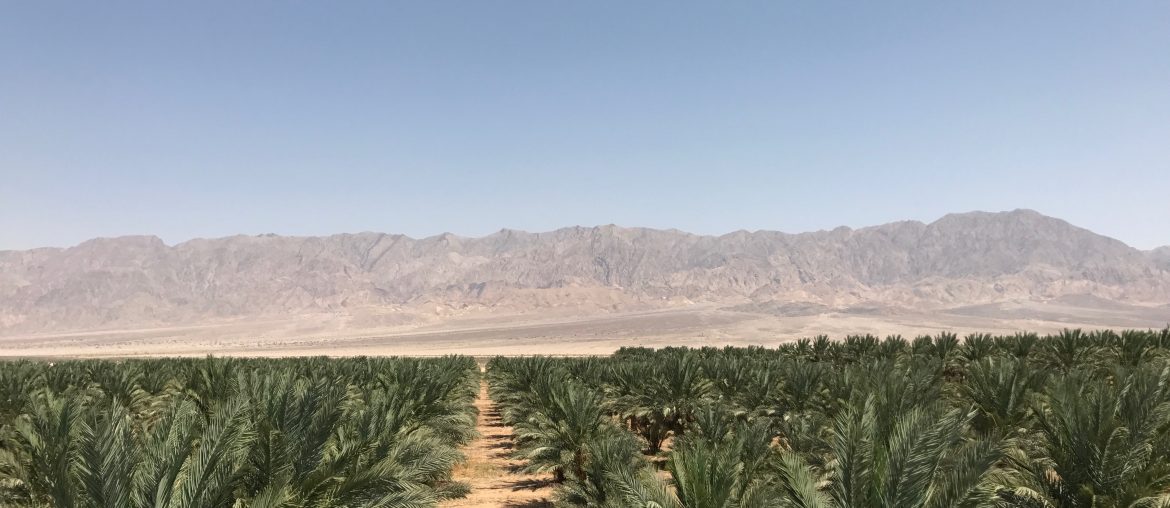5:30 AM, my alarm goes off. I rush to get dressed in my dirty, ripped trousers, fumble around for my work boots covered in squashed, sticky fruit and sand, pick up a t-shirt and walk to the kitchen half dressed. Sometimes the kettle is already boiled and there are people in there, waiting to make a cup of whatever starts them up in the morning. Turkish coffee, instant, tea, chocolate. We search the kitchen for a clean takeaway cup, stolen from the dining hall the previous night, sometimes reusing dirty ones people have used for water. Grab a drink bottle from the freezer, and off we go. Each day there’s a different person who takes just that little extra time getting dressed, we wait outside the door hoping we won’t have to remind them to shut it. As we walk to the “bus station” we wonder whether the other house will make it there before us, whether we’ll be on a cherry picker or on the ground, which “responsible adult” will be in charge of us today.
6:00AM, we pile into small, sweaty vans, the army radio station Galgalatz playing in the background. A murmur of good mornings can be heard before everyone goes mostly silent and tries to get at least one minute of extra sleep.
6:15AM, we arrive at the plantation down the road, and fall out of the van. “Someone bring the water!” is screamed out every morning. All around us, date palms, rows upon rows of beautiful, symmetrical trees. We trek down the line to find our crates, left the day before to mark our place. The huge flatbed truck, which we call a tractor for no apparent reason, arrives shortly after us, carrying the rest of the crates for the day.
6:30AM, we start picking. There’s an art to picking dates. No yellows, no dried ones, no squishy ones. Just the ones which are delightfully purple, velvety skin, slightly plump and soft flesh, without being overripe. At some point, the sun starts to rise and we watch it through the trees. We carry the crates to the trees, making sure we have an extra one to lay on the ground so no fruit touches the floor. Open up the mesh bag, pray there won’t be a camel spider inside, and stick our whole arm in. Flicking the ripe dates from the stem, the fall down. It becomes second nature.
8:30AM, breakfast. We sit in a hut on the field, everyone from around the plantation comes to join. 20 people, enjoying their first meal of the day together. Tahina, vegetables, boiled eggs, tuna, bread, cereal, dry biscuits, tea and coffee. Every day.
9:00AM, back to work. We repeat the same process, all day. Some people chatting, some listening to podcasts, some calling their loved ones at home. We learn to keep our minds busy while we work, trying to ignore the blistering heat, forgetting how sore our bodies are and how hungry we are.
11:00AM, break time! We sit in the shade, drinking water and trying to relax.
11:15AM, work, work, work.
1:30PM, we pile into the vans again, this time it’s worse. Everyone’s covered in dirt and sweat, leaving marks on whoever they sit next to. The aircon doesn’t work so you end up sweatier than on the field. Driving a few minutes before reaching our destination. the packing house. We all jump out, knowing that soon we’ll be on our way back for lunch. We move heavy crates of pre-sorted dates into stacks of twenty high. 120 crates of dates in one stack. The faster we move as a team, the quicker we can go to lunch.
2:00PM, we finally head back to kibbutz for lunch in the communal dining hall. It’s the same almost every day, rice or barley, but sometimes cous-cous if we’re lucky, some sort of roasted vegetable, roasted chicken legs, sweetcorn, whatever measly vegetarian option can be made with little to no effort, and a fresh salad bar.
This was my life, every day for 3 months. Living on a kibbutz (a communal settlement/community, which is usually a farm, rooted in the socialist movement) in the south of Israel, bordering with Jordan. It wasn’t easy. We were thrust into a new rhythm, made to wake up before the sun, work the land and take responsibility. I’m a privileged Jewish girl from Melbourne, that’s not something I can hide when I’m at home, but when I was on kibbutz I didn’t feel like I was the same person. I was working the land, supporting a community and I wasn’t getting paid. Every decision I made while on kibbutz had some effect on the community. That’s much more responsibility than I’ve ever had in my life. The kibbutz movement may be dying due to the impact of capitalism and materialism that affect individual motivations and decisions, but I’m proud to say that I have experienced a little of what the pioneers of Israel had, when they formed their own kibbutzim (plural of kibbutz) in the early 20th century.
My time on kibbutz was short, but it was among the meaningful periods in my life. I felt in touch with nature. I felt in touch with myself and my needs, both in terms of my relationships with others, but also with myself.
First published in vervezine.com


Comments are closed.